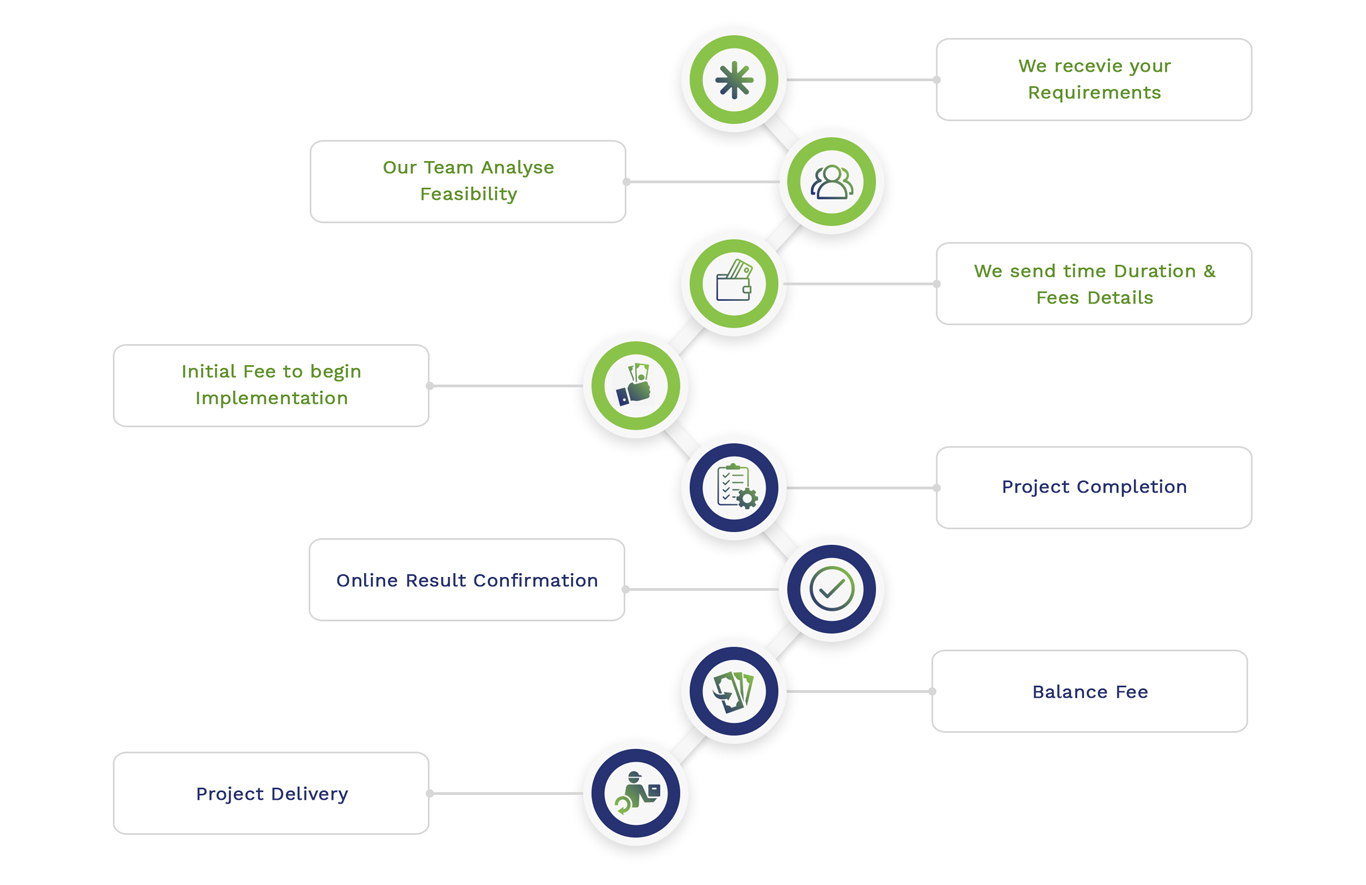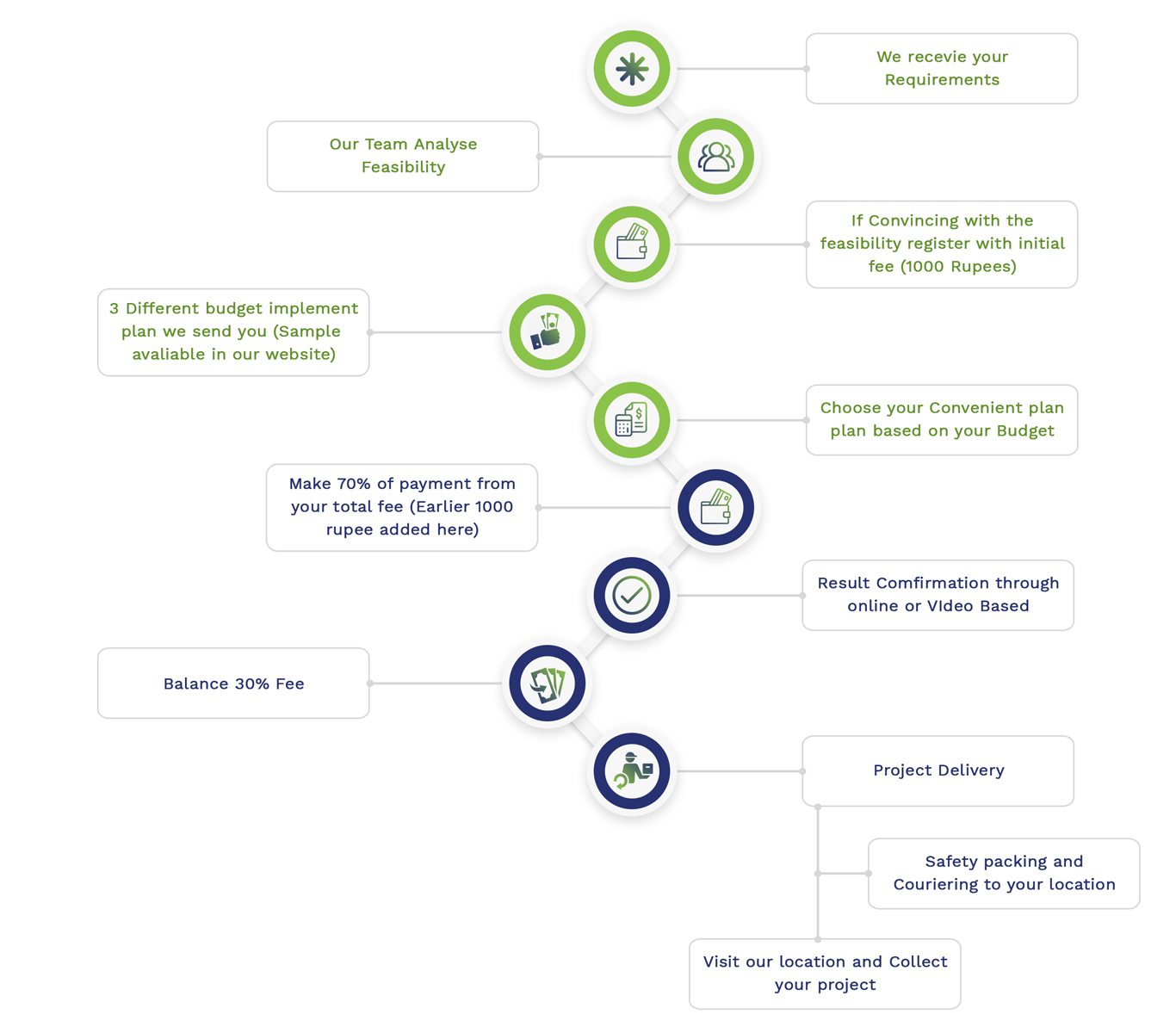Supply Chain Simulation Python is the process of simulating a supply chain that is examined as challenging as well as fascinating. Beneficial perceptions based on the effectiveness and efficacy of various supply chain policies and arrangements could be offered while simulating a supply chain in Python. We suggest this instance which instructs you during the procedure of configuring a simple supply chain simulation with Python. Generally, components such as manufacturers, customers, suppliers, and warehouses are encompassed in the simulation:
Step 1: Install Required Libraries
Initially, we must require matplotlib for visualization and numpy for numerical processes:
pip install numpy matplotlib
Step 2: Define the Supply Chain Components
For various elements of supply chain such as Manufacturers, Customers, Suppliers, and Warehouses, we plan to describe classes.
Supply Chain Simulation Code
import numpy as np
import matplotlib.pyplot as plt
class Supplier:
def __init__(self, supply_rate):
self.supply_rate = supply_rate
def supply(self):
return self.supply_rate
class Manufacturer:
def __init__(self, production_rate, supplier):
self.production_rate = production_rate
self.supplier = supplier
self.inventory = 0
def produce(self):
supply = self.supplier.supply()
production = min(supply, self.production_rate)
self.inventory += production
return production
class Warehouse:
def __init__(self, capacity):
self.capacity = capacity
self.inventory = 0
def store(self, products):
space_available = self.capacity – self.inventory
stored = min(products, space_available)
self.inventory += stored
return stored
def ship(self, demand):
shipped = min(demand, self.inventory)
self.inventory -= shipped
return shipped
class Customer:
def __init__(self, demand_rate):
self.demand_rate = demand_rate
def demand(self):
return self.demand_rate
# Simulation parameters
days = 30
supplier_rate = 100
production_rate = 80
warehouse_capacity = 500
customer_demand_rate = 70
# Create supply chain components
supplier = Supplier(supplier_rate)
manufacturer = Manufacturer(production_rate, supplier)
warehouse = Warehouse(warehouse_capacity)
customer = Customer(customer_demand_rate)
# Arrays to store results
supplier_inventory = np.zeros(days)
manufacturer_inventory = np.zeros(days)
warehouse_inventory = np.zeros(days)
customer_demand = np.zeros(days)
customer_fulfilled = np.zeros(days)
# Simulation loop
for day in range(days):
# Supplier supplies raw materials to the manufacturer
supplier_inventory[day] = supplier.supply()
# Manufacturer produces products
produced = manufacturer.produce()
manufacturer_inventory[day] = manufacturer.inventory
# Warehouse stores produced products
stored = warehouse.store(produced)
warehouse_inventory[day] = warehouse.inventory
# Customer demands products
demand = customer.demand()
customer_demand[day] = demand
# Warehouse ships products to the customer
fulfilled = warehouse.ship(demand)
customer_fulfilled[day] = fulfilled
# Plot results
plt.figure(figsize=(12, 8))
plt.subplot(3, 1, 1)
plt.plot(supplier_inventory, label=’Supplier Inventory’)
plt.plot(manufacturer_inventory, label=’Manufacturer Inventory’)
plt.legend()
plt.title(‘Supply Chain Simulation’)
plt.ylabel(‘Inventory Level’)
plt.subplot(3, 1, 2)
plt.plot(warehouse_inventory, label=’Warehouse Inventory’)
plt.legend()
plt.ylabel(‘Inventory Level’)
plt.subplot(3, 1, 3)
plt.plot(customer_demand, label=’Customer Demand’)
plt.plot(customer_fulfilled, label=’Customer Fulfilled’)
plt.legend()
plt.xlabel(‘Day’)
plt.ylabel(‘Products’)
plt.tight_layout()
plt.show()
Description of the Code
- Supplier Class: Every day, a certain value of raw materials is delivered by the supplier class.
- Manufacturer Class: With the support of raw materials provided by the supplier, the manufacturer class generates products. Generally, by the production rate and the quantity of raw materials offered, the production is constrained.
- Warehouse Class: The generated products are conserved. On the basis of the requirement, it sends them to consumers. By the capability of the warehouse, the storage is constrained.
- Customer Class: Every day, consumer class includes a determined demand rate for specific products.
- Simulation Loop: For monitoring the inventory levels at every phase of the supply chain and the requirement and satisfaction levels for consumers, it executes the simulation for a certain number of days.
- Plotting: To plot the inventory levels and customer requirement and satisfaction in a periodic manner, we focus on utilizing matplotlib.
supply chain simulation python projects
In the motive of assisting you in selecting crucial and impactful project topics, an extensive collection of 100 supply chain simulation project topics in Python are offered by us that encompasses different complications, settings, and factors of supply chain management:
Basic Simulations
- Single Supplier, Single Manufacturer, Single Warehouse, Single Customer
- Multiple Suppliers, Single Manufacturer
- Variable Customer Demand
- Inventory Management Policies
- Bullwhip Effect Simulation
- Basic Supply Chain Simulation
- Single Supplier, Multiple Manufacturers
- Multiple Warehouses
- Seasonal Demand Patterns
- Just-In-Time (JIT) Supply Chain
Advanced Inventory Management
- Reorder Point (ROP) Simulation
- Backorder Management
- ABC Analysis in Inventory Management
- Consignment Inventory Simulation
- Multi-Echelon Inventory Management
- Economic Order Quantity (EOQ) Model
- Safety Stock Calculation
- Inventory Turnover Simulation
- Vendor-Managed Inventory (VMI)
- Push vs. Pull Inventory Systems
Transportation and Logistics
- Fleet Management Simulation
- Routing and Scheduling of Deliveries
- Cold Chain Management
- Dynamic Routing Simulation
- Multi-Modal Transportation Simulation
- Transportation Lead Time Simulation
- Transportation Cost Optimization
- Cross-Docking Simulation
- Third-Party Logistics (3PL) Simulation
- Transportation Network Design
Production and Manufacturing
- Production Scheduling Optimization
- Lean Manufacturing Simulation
- Batch Processing Simulation
- Production Downtime Simulation
- Simulating Production Delays
- Capacity Planning Simulation
- Production Line Balancing
- Six Sigma in Supply Chain
- Make-to-Order vs. Make-to-Stock Simulation
- Assembly Line Simulation
Demand Forecasting and Planning
- Machine Learning in Demand Forecasting
- Collaborative Planning, Forecasting, and Replenishment (CPFR)
- Demand Shaping Simulation
- Seasonality and Trend Analysis
- Rolling Forecast Simulation
- Time Series Forecasting of Demand
- Scenario Analysis for Demand Planning
- Demand Sensing Simulation
- Promotion Planning and Simulation
- Sales and Operations Planning (S&OP)
Risk Management and Resilience
- Risk Mitigation Strategies
- Scenario Planning for Risk Management
- Inventory Buffers for Risk Management
- Demand Surge Simulation
- Natural Disaster Impact Simulation
- Supply Chain Disruption Simulation
- Supplier Reliability Simulation
- Resilient Supply Chain Design
- Supplier Diversification Strategies
- Geopolitical Risk Simulation
Sustainability and Green Supply Chain
- Sustainable Supply Chain Practices
- Waste Reduction in Supply Chain
- Renewable Energy in Supply Chain
- Resource Efficiency in Manufacturing
- Lifecycle Assessment in Supply Chain
- Carbon Footprint Simulation
- Green Logistics Simulation
- Circular Economy Simulation
- Sustainable Packaging Simulation
- Eco-friendly Transportation Simulation
Technology and Innovation
- Internet of Things (IoT) in Supply Chain
- Digital Twins for Supply Chain Simulation
- Augmented Reality (AR) for Warehouse Management
- Smart Contracts in Supply Chain
- Big Data Analytics in Supply Chain
- Blockchain in Supply Chain
- Artificial Intelligence (AI) in Supply Chain Optimization
- Robotic Process Automation (RPA)
- 3D Printing in Supply Chain
- Predictive Analytics for Supply Chain
Global Supply Chain
- International Trade Simulation
- Customs and Compliance Simulation
- Global Supplier Network Simulation
- Currency Exchange Rate Impact
- Export and Import Simulation
- Global Supply Chain Network Design
- Tariff and Trade Policy Impact
- Cross-Border Logistics Simulation
- Supply Chain Finance Simulation
- Global Sourcing Strategies
Retail and E-commerce
- Omni-Channel Supply Chain
- Warehouse Automation for E-commerce
- Customer Service Level Optimization
- Drop Shipping Simulation
- Click-and-Collect Supply Chain Simulation
- E-commerce Supply Chain Simulation
- Last-Mile Delivery Optimization
- Dynamic Pricing Simulation
- Return Logistics (Reverse Logistics) Simulation
- Order Fulfillment Simulation
Including procedures, instance code, concise description, and widespread collection of 100 project concepts, an extensive note on supply chain simulation with Python is provided by us which can be beneficial for you in creating such kinds of projects.
Get Supply Chain Simulation Python from our technical experts, we have all the needed tools and are well versed in the libraries that is applied! we work on simulating a supply chain in Python. matlabprojects.org provide you with best project ideas and topics. Drop us all your needed we will guide you with best simulation results.
Subscribe Our Youtube Channel
You can Watch all Subjects Matlab & Simulink latest Innovative Project Results
Our services
We want to support Uncompromise Matlab service for all your Requirements Our Reseachers and Technical team keep update the technology for all subjects ,We assure We Meet out Your Needs.
Our Services
- Matlab Research Paper Help
- Matlab assignment help
- Matlab Project Help
- Matlab Homework Help
- Simulink assignment help
- Simulink Project Help
- Simulink Homework Help
- Matlab Research Paper Help
- NS3 Research Paper Help
- Omnet++ Research Paper Help
Our Benefits
- Customised Matlab Assignments
- Global Assignment Knowledge
- Best Assignment Writers
- Certified Matlab Trainers
- Experienced Matlab Developers
- Over 400k+ Satisfied Students
- Ontime support
- Best Price Guarantee
- Plagiarism Free Work
- Correct Citations
Expert Matlab services just 1-click

Delivery Materials
Unlimited support we offer you
For better understanding purpose we provide following Materials for all Kind of Research & Assignment & Homework service.
 Programs
Programs Designs
Designs Simulations
Simulations Results
Results Graphs
Graphs Result snapshot
Result snapshot Video Tutorial
Video Tutorial Instructions Profile
Instructions Profile  Sofware Install Guide
Sofware Install Guide Execution Guidance
Execution Guidance  Explanations
Explanations Implement Plan
Implement Plan
Matlab Projects
Matlab projects innovators has laid our steps in all dimension related to math works.Our concern support matlab projects for more than 10 years.Many Research scholars are benefited by our matlab projects service.We are trusted institution who supplies matlab projects for many universities and colleges.
Reasons to choose Matlab Projects .org???
Our Service are widely utilized by Research centers.More than 5000+ Projects & Thesis has been provided by us to Students & Research Scholars. All current mathworks software versions are being updated by us.
Our concern has provided the required solution for all the above mention technical problems required by clients with best Customer Support.
- Novel Idea
- Ontime Delivery
- Best Prices
- Unique Work
Simulation Projects Workflow

Embedded Projects Workflow



 Matlab
Matlab Simulink
Simulink NS3
NS3 OMNET++
OMNET++ COOJA
COOJA CONTIKI OS
CONTIKI OS NS2
NS2






